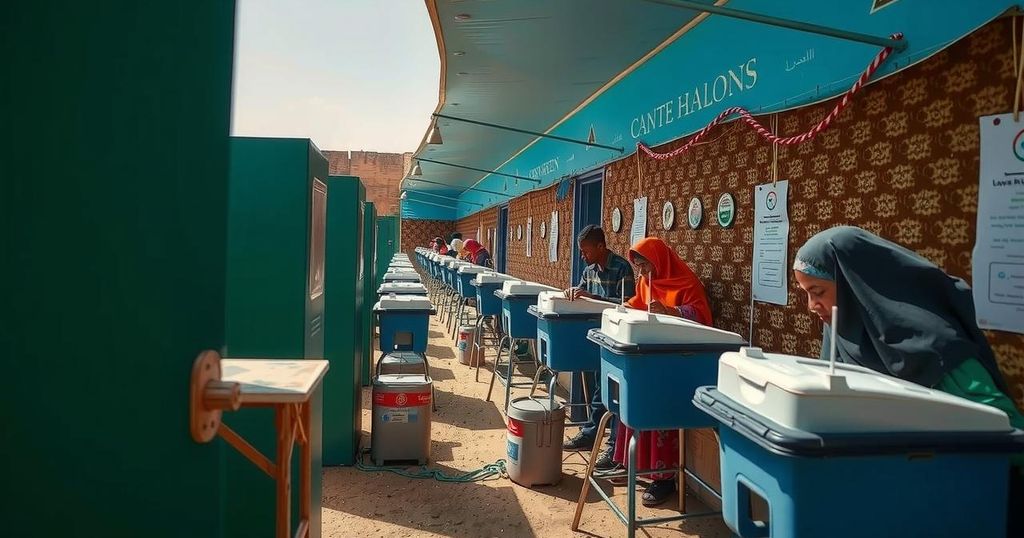Somaliland’s presidential election commenced on November 13, 2024, following a two-year delay. Over one million voters are expected to participate, with incumbent President Muse Bihi Abdi running for a second term against opposition candidate Abdirahman Mohamed Abdullahi. The election reflects Somaliland’s stable governance and aspirations for international recognition despite ongoing regional tensions.
Voting commenced in Somaliland, a self-declared independent region of Somalia, on November 13, 2024, marking a pivotal presidential election that faced a two-year delay. Voters are casting their ballots, expressing a desire for improved economic conditions and job opportunities. An estimated one million citizens are participating at over 2,000 polling stations, with 28 international observers overseeing the process. The electoral contest features incumbent President Muse Bihi Abdi of the Kulmiye Party seeking re-election and his main rival, Abdirahman Mohamed Abdullahi from the Waddani Party, advocating for democratic reforms. Faisal Ali Warabe of the Justice and Welfare Party is also in contention, promoting a national unity government. Somaliland has maintained a stable self-governance structure since its secession from Somalia in 1991, despite lacking international recognition. This election symbolizes not only the region’s political maturity but also highlights the ongoing challenges and aspirations of its citizens in a politically tense Horn of Africa.
Somaliland declared independence from Somalia in 1991, during a tumultuous period of civil conflict. It has established its own government, currency, and security apparatus, offering a stark contrast to the ongoing instability faced by Somalia. The region’s latest presidential election comes after a postponed vote in 2022 due to economic difficulties. This election is significant as it may further influence Somaliland’s standing in the international community, particularly regarding its relations with neighboring Ethiopia, which recently agreed to grant the region access to the Indian Ocean, leading to heightened tensions with Somalia.
The presidential election in Somaliland marks a crucial moment for the region’s political landscape, as citizens express their aspirations for economic improvements and democratic governance. The participation of major political figures and the involvement of international observers coincides with a transformative period in Somaliland, showcasing its tenacity in governance. The outcome will be vital not only for internal stability but also for Somaliland’s pursuit of international recognition amidst regional tensions.
Original Source: apnews.com






